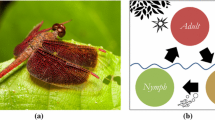Abstract
Dispatching rules are often the method of choice for solving various scheduling problems, especially since they are applicable in dynamic scheduling environments. Unfortunately, dispatching rules are hard to design and are also unable to deliver results which are of equal quality as results achieved by different metaheuristic methods. As a consequence, genetic programming is commonly used in order to automatically design dispatching rules. Furthermore, a great amount of research with different genetic programming methods is done to increase the performance of the generated dispatching rules. In order to additionally improve the effectiveness of the evolved dispatching rules, in this paper the use of several different ensemble learning algorithms is proposed to create ensembles of dispatching rules for the dynamic scheduling problem in the unrelated machines environment. Four different ensemble learning approaches will be considered, which will be used in order to create ensembles of dispatching rules: simple ensemble combination (proposed in this paper), BagGP, BoostGP and cooperative coevolution. Additionally, the effectiveness of these algorithms is analysed based on some ensemble learning parameters. Finally, an additional search method, which finds the optimal combinations of dispatching rules to form the ensembles, is proposed and applied. The obtained results show that by using the aforementioned ensemble learning approaches it is possible to significantly increase the performance of the generated dispatching rules.




Similar content being viewed by others
References
A. Allahverdi, J.N.D. Gupta, T. Aldowaisan, A review of scheduling research involving setup considerations. Omega 27(2), 219–239 (1999). doi:10.1016/S0305-0483(98)00042-5
A. Allahverdi, C.T. Ng, T.C.E. Cheng, M.Y. Kovalyov, A survey of scheduling problems with setup times or costs. Eur. J. Oper. Res. 187(3), 985–1032 (2008). doi:10.1016/j.ejor.2006.06.060
U. Bhowan, M. Johnston, M. Zhang, X. Yao, Reusing genetic programming for ensemble selection in classification of unbalanced data. IEEE Trans. Evolut. Comput. 18, 893–908 (2013)
U. Bhowan, M. Johnston, M. Zhang, X. Yao, Evolving diverse ensembles using genetic programming for classification with unbalanced data. IEEE Trans. Evolut. Comput. 17(3), 368–386 (2013)
J. Branke, S. Nguyen, C. Pickardt, M. Zhang, Automated design of production scheduling heuristics: a review. IEEE Trans. Evolut. Comput. (2015). doi:10.1109/TEVC.2015.2429314
L. Breiman, Bagging predictors. Mach. Learn. 24(2), 123–140 (1996). doi:10.1007/BF00058655
E.K. Burke, M.R. Hyde, G. Kendall, G. Ochoa, E. Ozcan, J.R. Woodward, Exploring hyper-heuristic methodologies with genetic programming. Comput. Intell. 1, 177–201 (2009). doi:10.1007/978-3-642-01799-5_6
E.K. Burke, M. Hyde, G. Kendall, G. Ochoa, E. Ozcan, J.R. Woodward, A classification of hyper-heuristics approaches. Handb. Metaheuristics 57, 449–468 (2010). doi:10.1007/978-1-4419-1665-5_15
C. Dimopoulos, A.M.S. Zalzala, A genetic programming heuristic for the one-machine total tardiness problem, in Proceedings of the 1999 Congress on Evolutionary Computation, CEC 1999, vol. 3, no. 1 (1999), pp. 2207–2214. doi:10.1109/CEC.1999.785549
M. Đurasević, D. Jakobović, K. Knežević, Adaptive scheduling on unrelated machines with genetic programming. Appl. Soft Comput. 48, 419–430 (2016). doi:10.1016/j.asoc.2016.07.025
C. Ferreira, Gene expression programming : a new adaptive algorithm for solving problems. Complex Syst. 13(2), 1–22 (2001)
G. Folino, C. Pizzuti, G. Spezzano, GP Ensemble for Distributed Intrusion Detection Systems (Springer, Berlin, 2005), pp. 54–62
G. Folino, C. Pizzuti, G. Spezzano, Training distributed GP ensemble with a selective algorithm based on clustering and pruning for pattern classification. IEEE Trans. Evolut. Comput. 12(4), 458–468 (2008)
Y. Freund, R.E. Schapire, A desicion-theoretic generalization of on-line learning and an application to boosting, in European Conference on Computational Learning Theory (Springer, 1995), pp. 23–37
E. Hart, K. Sim, A hyper-heuristic ensemble method for static job-shop scheduling. Evolut. Comput. 24(4), 609–635 (2016)
T. Hildebrandt, J. Heger, B. Scholz-Reiter, Towards improved dispatching rules for complex shop floor scenarios: a genetic programming approach, in GECCO ’10: Proceedings of the 12th Annual Conference on Genetic and Evolutionary Computation (2010), pp. 257–264. doi:10.1145/1830483.1830530
L. Hong, S.E. Page, Groups of diverse problem solvers can outperform groups of high-ability problem solvers. Proc. Natl. Acad. Sci. USA 101(46), 16385–16389 (2004)
R. Hunt, M. Johnston, R. Hunt, M. Johnston, Evolving “Less-myopic ” Scheduling Rules for Dynamic Job Shop Scheduling with Genetic Programming, pp. 927–934
H. Iba, Bagging, boosting, and bloating in genetic programming, in Proceedings of the 1st Annual Conference on Genetic and Evolutionary Computation—Volume 2, GECCO’99 (Morgan Kaufmann Publishers Inc., 1999), pp. 1053–1060
D. Jakobović, Evolutionary computation framework. http://gp.zemris.fer.hr/ecf
D. Jakobović, Project site. http://gp.zemris.fer.hr/scheduling/
D. Jakobović, L. Jelenković, L. Budin, Genetic programming heuristics for multiple machine scheduling, in Proceedings of the 10th European Conference on Genetic Programming, vol. 4445 (2007), pp. 321–330. doi:10.1007/978-3-540-71605-1_30
D. Jakobović, K. Marasović, Evolving priority scheduling heuristics with genetic programming. Appl. Soft Comput. J. 12(9), 2781–2789 (2012). doi:10.1016/j.asoc.2012.03.065
J.R. Koza, Human-competitive results produced by genetic programming. Genet. Program. Evolvable Mach. 11(3–4), 251–284 (2010). doi:10.1007/s10710-010-9112-3
K. Miyashita, Job-shop scheduling with genetic programming, in Proceedings of the Genetic and Evolutionary Computation Conference (GECCO-2000) (2000), pp. 505–512
S. Nguyen, K.C. Tan, A Dispatching Rule Based Genetic Algorithm for Order Acceptance and Scheduling (2015), pp. 433–440
S. Nguyen, M. Zhang, M. Johnston, A Sequential Genetic Programming Method to Learn Forward Construction Heuristics for Order Acceptance and Scheduling (2014), pp. 1824–1831. doi:10.1109/CEC.2014.6900347
S. Nguyen, M. Zhang, M. Johnston, K.C. Tan, A coevolution genetic programming method to evolve scheduling policies for dynamic multi-objective job shop scheduling problems, in 2012 IEEE Congress on Evolutionary Computation, CEC 2012 (i) (2012), pp. 10–15. doi:10.1109/CEC.2012.6252968
S. Nguyen, M. Zhang, K.C. Tan, Enhancing genetic programming based hyper-heuristics for dynamic multi-objective job shop scheduling problems, in 2015 IEEE Congress on Evolutionary Computation (CEC) (2015), pp. 2781–2788. doi:10.1109/CEC.2015.7257234
S. Nguyen, M. Zhang, M. Johnston, K.C. Tan, A computational study of representations in genetic programming to evolve dispatching rules for the job shop scheduling problem. IEEE Trans. Evolut. Comput. 17(5), 621–639 (2013). doi:10.1109/TEVC.2012.2227326
S. Nguyen, M. Zhang, M. Johnston, K.C. Tan, Dynamic multi-objective job shop scheduling: a genetic programming approach, in Automated Scheduling and Planning, Studies in Computational Intelligence, vol. 505, ed. by A.S. Uyar, E. Ozcan, N. Urquhart (Springer, Berlin, 2013), pp. 251–282
S. Nguyen, M. Zhang, M. Johnston, K.C. Tan, Learning iterative dispatching rules for job shop scheduling with genetic programming. Int. J. Adv. Manuf. Technol. 67(1–4), 85–100 (2013). doi:10.1007/s00170-013-4756-9
S. Nguyen, M. Zhang, M. Johnston, K.C. Tan, Automatic design of scheduling policies for dynamic multi-objective job shop scheduling via cooperative coevolution genetic programming. IEEE Trans. Evolut. Comput. 18(2), 193–208 (2014). doi:10.1109/TEVC.2013.2248159
L. Nie, L. Gao, P. Li, L. Zhang, Application of gene expression programming on dynamic job shop scheduling problem, in Proceedings of the 2011 15th International Conference on Computer Supported Cooperative Work in Design (CSCWD) (2011), pp. 291–295. doi:10.1109/CSCWD.2011.5960088
L. Nie, X. Shao, L. Gao, W. Li, Evolving scheduling rules with gene expression programming for dynamic single-machine scheduling problems. Int. J. Adv. Manuf. Technol. 50(5–8), 729–747 (2010). doi:10.1007/s00170-010-2518-5
G. Paris, D. Robilliard, C. Fonlupt, Applying boosting techniques to genetic programming, in Artificial Evolution 5th International Conference, Evolution Artificielle, EA 2001, vol. 2310 (2001), pp. 267–278. doi:10.1007/3-540-46033-0_22
J. Park, S. Nguyen, M. Zhang, M. Johnston, Genetic programming for order acceptance and scheduling, in 2013 IEEE Congress on Evolutionary Computation, CEC 2013, vol. 3 (2013), pp. 1005–1012. doi:10.1109/CEC.2013.6557677
J. Park, S. Nguyen, M. Zhang, M. Johnston, Evolving ensembles of dispatching rules using genetic programming for job shop scheduling. EuroGP 1, 92–104 (2015)
F. Peng, K. Tang, G. Chen, X. Yao, Population-based algorithm portfolios for numerical optimization. IEEE Trans. Evolut. Comput. 14(5), 782–800 (2010)
M. Pinedo, Scheduling Theory, Algorithms and Systems, 4th edn. (Springer US, Boston, 2012)
R. Poli, W.B. Langdon, N.F. McPhee, A field guide to genetic programming. Published via http://lulu.com and freely available at http://www.gp-field-guide.org.uk (2008). (With contributions by J. R. Koza)
R. Polikar, Ensemble Learn. 4(1), 2776 (2009)
M.A. Potter, K.A.D. Jong, A cooperative coevolutionary approach to function optimization, in Proceedings of the International Conference on Evolutionary Computation. The Third Conference on Parallel Problem Solving from Nature: Parallel Problem Solving from Nature, PPSN III (Springer, London, 1994), pp. 249–257. http://dl.acm.org/citation.cfm?id=645822.670374
L.V.D. Souza, A.T.R. Pozo, A.C. Neto, J.M.C. Rosa, Genetic Programming and Boosting Technique to Improve Time Series Forecasting, in Evolutionary Computation (2009). doi:10.5772/9617
J.C. Tay, N.B. Ho, Evolving dispatching rules using genetic programming for solving multi-objective flexible job-shop problems. Comput. Ind. Eng. 54(3), 453–473 (2008). doi:10.1016/j.cie.2007.08.008
S.Y. Yuen, X. Zhang, On composing an algorithm portfolio. Memet. Comput. 7(3), 203–214 (2015)
Author information
Authors and Affiliations
Corresponding author
Rights and permissions
About this article
Cite this article
Ɖurasević, M., Jakobović, D. Comparison of ensemble learning methods for creating ensembles of dispatching rules for the unrelated machines environment. Genet Program Evolvable Mach 19, 53–92 (2018). https://doi.org/10.1007/s10710-017-9302-3
Received:
Revised:
Published:
Issue Date:
DOI: https://doi.org/10.1007/s10710-017-9302-3




